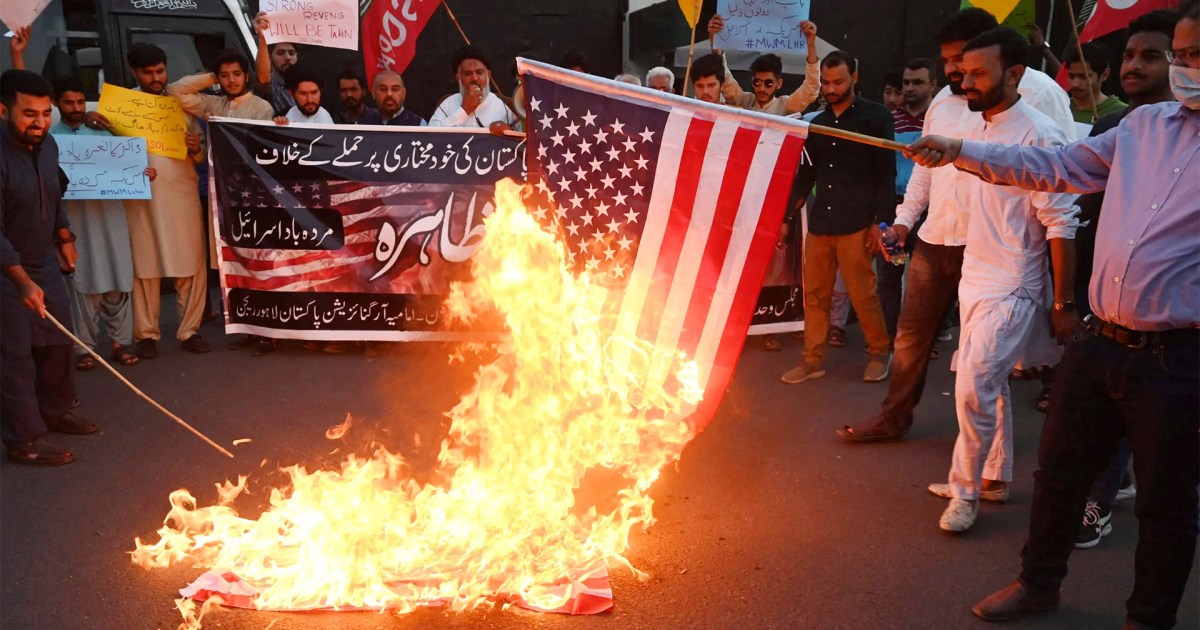Pakistani journalist and writer Hassan Ali says that regardless of when the next Pakistani elections are held and who will win, it is clear that America is losing in Pakistan, and that there is a consensus in the Pakistani political spectrum that the future is in favor of China, and that the future of Pakistan is linked to Beijing.
In an article for the American Time magazine, the writer notes that Pakistan-US relations reached their lowest level during the rule of former Prime Minister Imran Khan, who accused Washington of plotting to remove him from his post.
He said that Pakistan was previously one of Washington's strongest allies and a reliable partner in the Cold War, but US President Joe Biden's visit last week to Asia to strengthen relations with old allies on the continent included Japan, South Korea and India, and excluded another old friend, Pakistan, which the writer said Washington has been steadily ceding it to China.
his second country
The writer drew attention to the visit of the newly appointed Pakistani Foreign Minister Bilawal Bhutto Zardari to China, in which he described China as his second country.
He said the decline of US influence in Pakistan has precipitated the end of the US campaign in Afghanistan, which brought long-running tensions between the two countries to the surface, with each side blaming the other for its failure.
He added that Pakistan says that its participation in the war in Afghanistan has killed 70,000 people, incurred economic losses in excess of $150 billion, and made itself a target of violent "extremism".
Meanwhile, the United States was blaming the Pakistani military and the country's powerful internal intelligence agency for harboring Osama bin Laden in a hideout in Abbottabad, and secretly helping the Taliban regain control of Afghanistan.
The deterioration started early
He explained that relations between the United States and Pakistan have deteriorated and deteriorated since the 1950s and early 1960s, when Washington provided Islamabad with millions of dollars in foreign aid as a reward for joining its global campaign against communism, and then suspended the aid as a punishment for Islamabad's rapprochement with Egypt and China in 1965.
Relations warmed again in the 1970s, when the Nixon and Ford administrations used Pakistan as a mediator to improve relations with China, before they soured again under the Jimmy Carter administration that cut military aid to punish Pakistan for building a uranium enrichment facility.
With Pakistan becoming a front line in Washington's campaign against the Soviet invasion of Afghanistan, cooperation between the United States and Pakistan stabilized once again.
But when that war ended in 1989, the United States imposed sanctions on Pakistan under the Pressler Amendment to uranium enrichment and quickly reduced its involvement in the region.
This sowed the seeds of mistrust between the two sides and prompted Pakistan to develop its relationship with China.
gradual spacing
But the years leading up to America's withdrawal from Afghanistan last year saw old allies gradually drift apart, Pakistan's decisive pivot toward China, and the United States' closeness to India.
On the other hand, the China-Pakistan Economic Corridor, a $62 billion infrastructure program, creates a trade and energy route between the Arabian Sea and China through Pakistan, and makes China a hub for Pakistan's economic development.
The writer said that Pakistan's dependence on Chinese investment and its resentment of what it considers American duplicity means that it is no longer important now who takes the reins of government in Islamabad, as all major and small political players are committed to giving priority to Pakistan's relationship with China over the relationship with the United States, and the only difference is It is the degree to which the United States is openly antagonistic.

